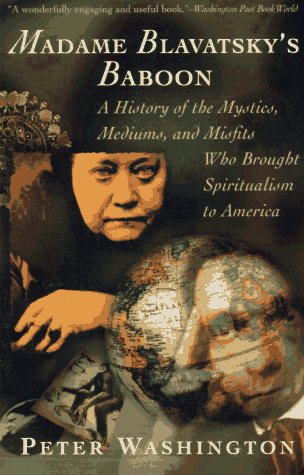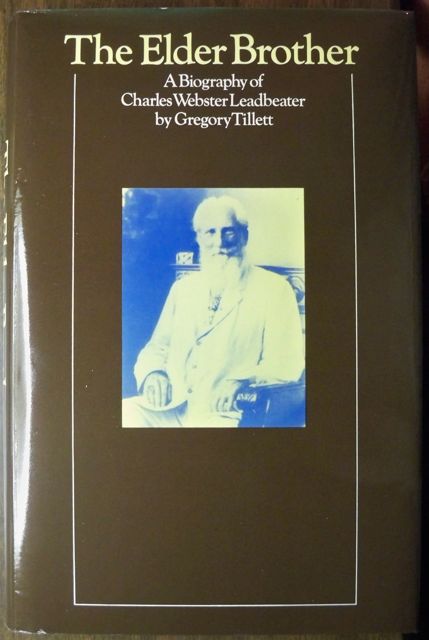Theosophy
The term theosophy is derived from the Greek theos ("god") and sophia ("wisdom") and means wisdom of or about God. In a general sense, theosophy refers to a broad spectrum of occult or mystical philosophies, often pantheistic in nature. The Western theosophical tradition may be said to be derived from the hermetic tradition of the Renaissance and post-Renaissance and is characterized by an emphasis on the hidden tradition passed down in a succession from the ancients. This tradition is thought to provide a universal key to nature and to humanity's role therein.
 More specifically, the term refers to the Theosophical Society, its offshoots, and the doctrines
held by its members. The most important early figure in the movement was
Helena Petrovna Blavatsky, who, along with H. S. Olcott (1832-1907) and W. Q. Judge (1851-96), founded
the society in 1875. In numerous works, including Isis Unveiled (2 vols., 1877) and The
Secret Doctrine (2 vols., 1888), Blavatsky elaborated an amalgamation of previous theories
that were claimed to be derived from the mahatmas of ancient India. The Theosophical
Society grew rapidly in Europe and the United States, its two most influential adherents being
Annie Besant and Rudolf Steiner.
More specifically, the term refers to the Theosophical Society, its offshoots, and the doctrines
held by its members. The most important early figure in the movement was
Helena Petrovna Blavatsky, who, along with H. S. Olcott (1832-1907) and W. Q. Judge (1851-96), founded
the society in 1875. In numerous works, including Isis Unveiled (2 vols., 1877) and The
Secret Doctrine (2 vols., 1888), Blavatsky elaborated an amalgamation of previous theories
that were claimed to be derived from the mahatmas of ancient India. The Theosophical
Society grew rapidly in Europe and the United States, its two most influential adherents being
Annie Besant and Rudolf Steiner.
According to Madame Blavatsky, the doctrines of theosophy rest on three fundamental propositions. The first postulates an omnipresent, boundless, and immutable principle that transcends human understanding. It is the one unchanging reality, or infinite potentiality, inherent in all life and covers all that humans have tried to say about God. The second deals with the universality of the law of periodicity recorded by science as found in all nature. As morning, noon, and night are succeeded by morning again, so birth, youth, adulthood, and death are succeeded by rebirth. Reincarnation is the process of human development, in which all growth is governed by the law of justice or Karma. The third proposition declares the fundamental identity of all souls with the universal Over-Soul, suggesting that brotherhood is a fact in nature, and the obligatory pilgrimage for every soul through numerous cycles of incarnation. Theosophy admits of no privileges or special gifts in humans except those won by effort and merit. Perfected individuals and great teachers, such as Buddha, Jesus, and the mahatmas, are universal beings, the flower of evolution.
After the death (1891) of Madame Blavatsky a battle for leadership of the society ensued, from which Annie Besant emerged as leader in Europe and Asia, whereas W. Q. Judge led a secessionist movement in the United States. Under Besant, the society flourished. In 1911 she put forward Jiddu Krishnamurti as a World Teacher, around whom she founded the Order of the Star of India. This action seems to have provoked Steiner, who, with a large number of followers, left to found the Anthroposophical Society.
The various divisions and subdivisions have continued since that time and have influenced numerous literary and intellectual figures. The groups continue to carry on active meetings and publishing programs.
Bibliography:
- Ellwood, Robert, Theosophy (1986) and, as ed., Eastern Spirituality in America (1987)
- Kannan, A., Impact of Theosophy and Science: Modern Thought in the Light of Theosophy (1971)
- Melton, J. G., ed., The Origins of Theosophy (1990)
- Moore, R. L., In Search of White Crows: Spiritualism, Parapsychology, and American Culture (1977)
- Steiner, R., Theosophy, trans. by H. B. Monges (1988)
- Webb, James, The Occult Underground (1974) and The Occult Establishment (1976)
 Madame Blavatsky's Baboon
Madame Blavatsky's Baboon
A History of the Mystics, Mediums, and Misfits Who Brought Spiritualism to America
Peter Washington- ELDER BROTHER: A Biography of Charles Webster Leadbeater
Gregory Tillett
The evidence for Leadbeaters' homsexual paedophilia is collected and published

Back to Gurus Page.